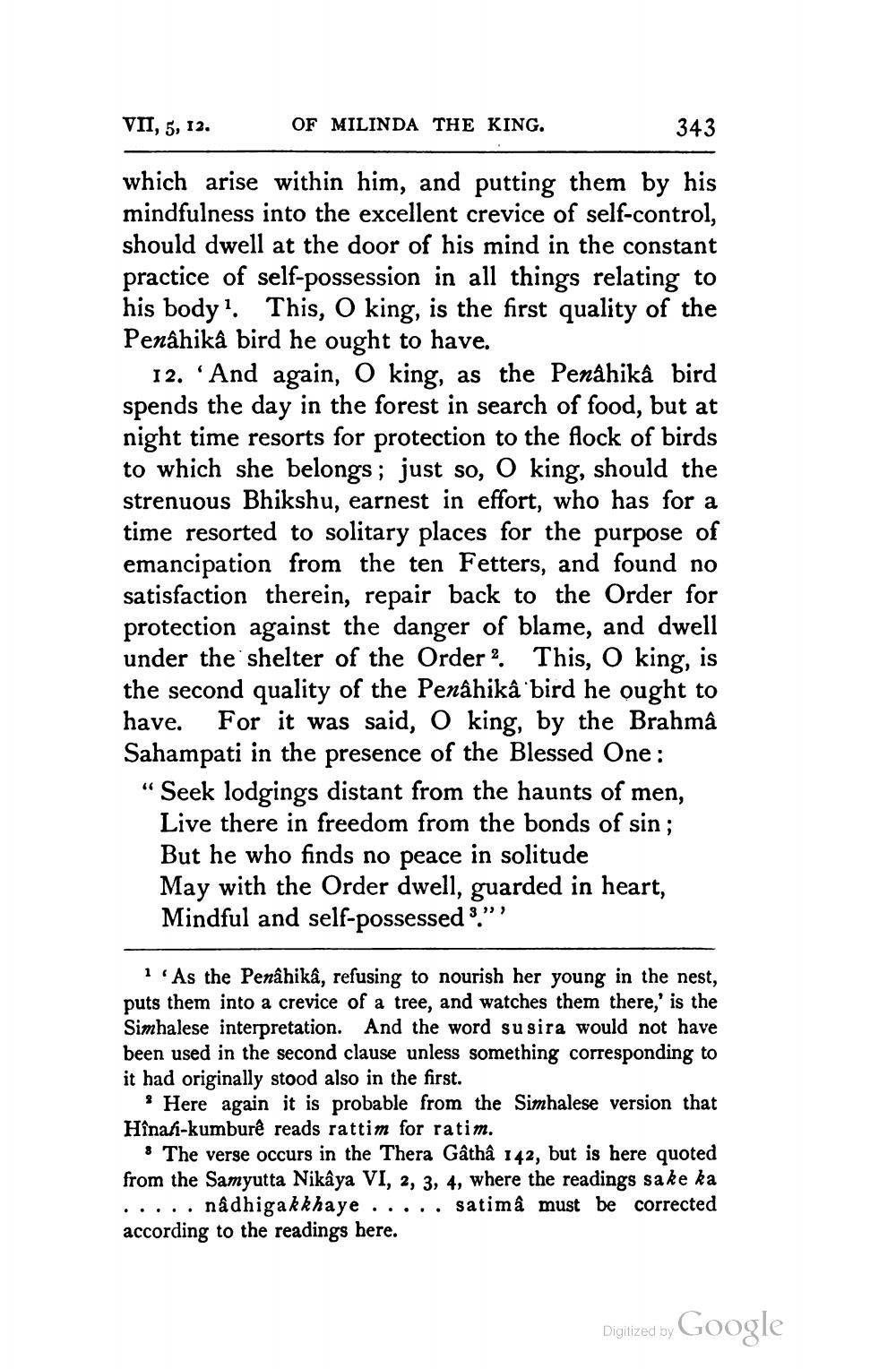________________
VII, 5, 12.
OF MILINDA THE KING.
343
which arise within him, and putting them by his mindfulness into the excellent crevice of self-control, should dwell at the door of his mind in the constant practice of self-possession in all things relating to his body'. This, O king, is the first quality of the Penâhikâ bird he ought to have.
12. 'And again, O king, as the Penahikâ bird spends the day in the forest in search of food, but at night time resorts for protection to the flock of birds to which she belongs; just so, O king, should the strenuous Bhikshu, earnest in effort, who has for a time resorted to solitary places for the purpose of emancipation from the ten Fetters, and found no satisfaction therein, repair back to the Order for protection against the danger of blame, and dwell under the shelter of the Order 2. This, o king, is the second quality of the Penâhikâ bird he ought to have. For it was said, O king, by the Brahmâ Sahampati in the presence of the Blessed One: “Seek lodgings distant from the haunts of men, Live there in freedom from the bonds of sin; But he who finds no peace in solitude May with the Order dwell, guarded in heart, Mindful and self-possessed."
1 As the Penâhikâ, refusing to nourish her young in the nest, puts them into a crevice of a tree, and watches them there,' is the Simhalese interpretation. And the word susira would not have been used in the second clause unless something corresponding to it had originally stood also in the first.
? Here again it is probable from the Simhalese version that Hînati-kumburê reads rattim for ratim.
8 The verse occurs in the Thera Gâthâ 142, but is here quoted from the Samyutta Nikâya VI, 2, 3, 4, where the readings sake ka ..... nâdhigakkhaye ..... satimâ must be corrected according to the readings here.
Digitized by Google




